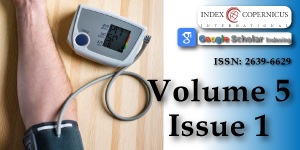Meclizine prescriptions in the Emergency Department and return visits in the elderly population
Main Article Content
Abstract
Background: Meclizine is a commonly prescribed medication for patients discharged from the Emergency Department (ED) with a diagnosis of peripheral vertigo, however it is on the Beers list of medications to avoid in elderly patients.
Objectives: This study aims to determine the correlation between use of meclizine and return visits to the ED within 1 week in patients > 65 years old.
Methods: This is a retrospective observational study conducted at 2 urban tertiary care EDs over 5 years. Inclusion criteria included patients > 65 years who were given meclizine in the ED or discharged with a prescription. Charts were reviewed for diagnosis, prescriptions and return visits within 7 days.
Results: There were a total of 1608 patients over 65 years of age who met inclusion criteria, 669 patients identified as receiving meclizine in the ED and 962 who received no meclizine (ED or ED plus home prescription). Of the meclizine patients, 548 (84.8%) were given home prescriptions, of which there were 36 (6.6%) return visits within 7 days. Patients who were given meclizine while in the ED without home prescriptions (121) had 16 return visits (13.2%). Among the non-meclizine group, 102 patients (10.6%) had a return visit within 7 days.
Conclusion: There was no increase in return visits in elderly patients discharged from the ED with a prescription for meclizine after a diagnosis of benign dizziness. Meclizine prescriptions at discharge were associated with fewer return visits to the ED within 1 week. Ongoing dizziness was the most common reason for return visits; there were no documented chief complaints of weakness, syncope/falls, or hypotension.
Article Details
Copyright (c) 2021 McGlone S, et al.

This work is licensed under a Creative Commons Attribution 4.0 International License.
Neuhauser HK, Radtke A, von Brevern M, Lezius F, Feldmann M, et al. Burden of dizziness and vertigo in the community. Arch Intern Med. 2008; 168: 2118. PubMed: https://pubmed.ncbi.nlm.nih.gov/18955641/
Salles N, Kressig RW, Michel JP. Management of chronic dizziness in elderly people. Z Gerontol Geriatr. 2003; 36: 10-15. PubMed: https://pubmed.ncbi.nlm.nih.gov/12616402/
Mitchelson F. Pharmacological agents affecting emesis. A review (Part I). Drugs. 1992; 43: 295-315. PubMed: https://pubmed.ncbi.nlm.nih.gov/1374316/
American Geriatrics Society 2015 Updated Beers Criteria for Potentially Inappropriate Medication Use in Older Adults J Am Geriatr Soc. 2015; 63:2227–2246. PubMed: https://pubmed.ncbi.nlm.nih.gov/26446832/
Hanlon JT, Schmader KE, Kornkowski MJ, Weinberger M, Landsman PB, et al. Adverse drug events in high risk older outpatients. J Am Geriatr Soc. 1997; 45: 945-948. PubMed: https://pubmed.ncbi.nlm.nih.gov/9256846/
Shih RD, Walsh B, Eskin B, Allegra J, Fiesseler FW, et al. Diazepam and Meclizine Are Equally Effective in the Treatment of Vertigo: An Emergency Department Randomized Double-Blind Placebo-Controlled Trial. J Emerg Med. 2017; 52: 23-27. PubMed: https://pubmed.ncbi.nlm.nih.gov/27789115/
Chang AK, Olshaker JS. Dizziness and Vertigo, in Marx JA, Hockberger RS, Walls RM, et al (eds): Rosen’s Emergency Medicine: Concepts and Clinical Practice. ed 8. St. Louis, Mosby, Inc., 2014; 19: 162-169.
Clinical practice guideline: Benign Paroxysmal Positional Vertigo (BPPV), American Academy of Family Physicians. https://www.aafp.org/patient-care/clinical-recommendations/all/vertigo.html
Roberts DS, lin HW, Bhattacharyya N. Health care practice patterns for balance disorders in the elderly. Laryngoscope. 2013; 123: 2539-2543. PubMed: https://pubmed.ncbi.nlm.nih.gov/23720236/
Saber Tehrani AS, Coughlan D, Hsieh YH, Mantokoudis G, Korley FK, et al Rising annual costs of dizziness presentations to U.S. emergency departments. Acad Emerg Med. 2013; 20: 689-696. PubMed: https://pubmed.ncbi.nlm.nih.gov/23859582/
Hayward J, Hagtvedt R, Ma W, Gauri A, Vester M, Holroyd BR. Predictors of Admission in Adult Unscheduled Return Visits to the Emergency Department. West J Emerg Med. 2018; 19: 912-918. PubMed: https://pubmed.ncbi.nlm.nih.gov/30429921/
Shy BD, Loo GT, Lowry T, Kim EY, Hwang U, et al. Bouncing Back Elsewhere: Multilevel Analysis of Return Visits to the Same or a Different Hospital After Initial Emergency Department Presentation. Ann Emerg Med. 2018; 71: 555-563. PubMed: https://pubmed.ncbi.nlm.nih.gov/28967514/
Sri-On J, Tirrell GP, Bean JF, Lipsitz LA, Liu SW. Revisit, Subsequent Hospitalization, Recurrent Fall, and Death Within 6 Months After a Fall Among Elderly Emergency Department Patients. Ann Emerg Med. 2017; 70: 516-521. PubMed: https://pubmed.ncbi.nlm.nih.gov/28688769/
Antivert (meclizine) package insert. New York, NY: Pfizer Pharmaceuticals Group; 2012.
Clinical Pharmacology. Tampa, FL: Gold Standard, Inc.; 2019. http://www.clinicalpharmacology.com
American Geriatrics Society 2019 Updated AGS Beers Criteria® for Potentially Inappropriate Medication Use in Older Adults. J Am Geriatr Soc. 2019; 67: 674-694. PubMed: https://pubmed.ncbi.nlm.nih.gov/30693946/

